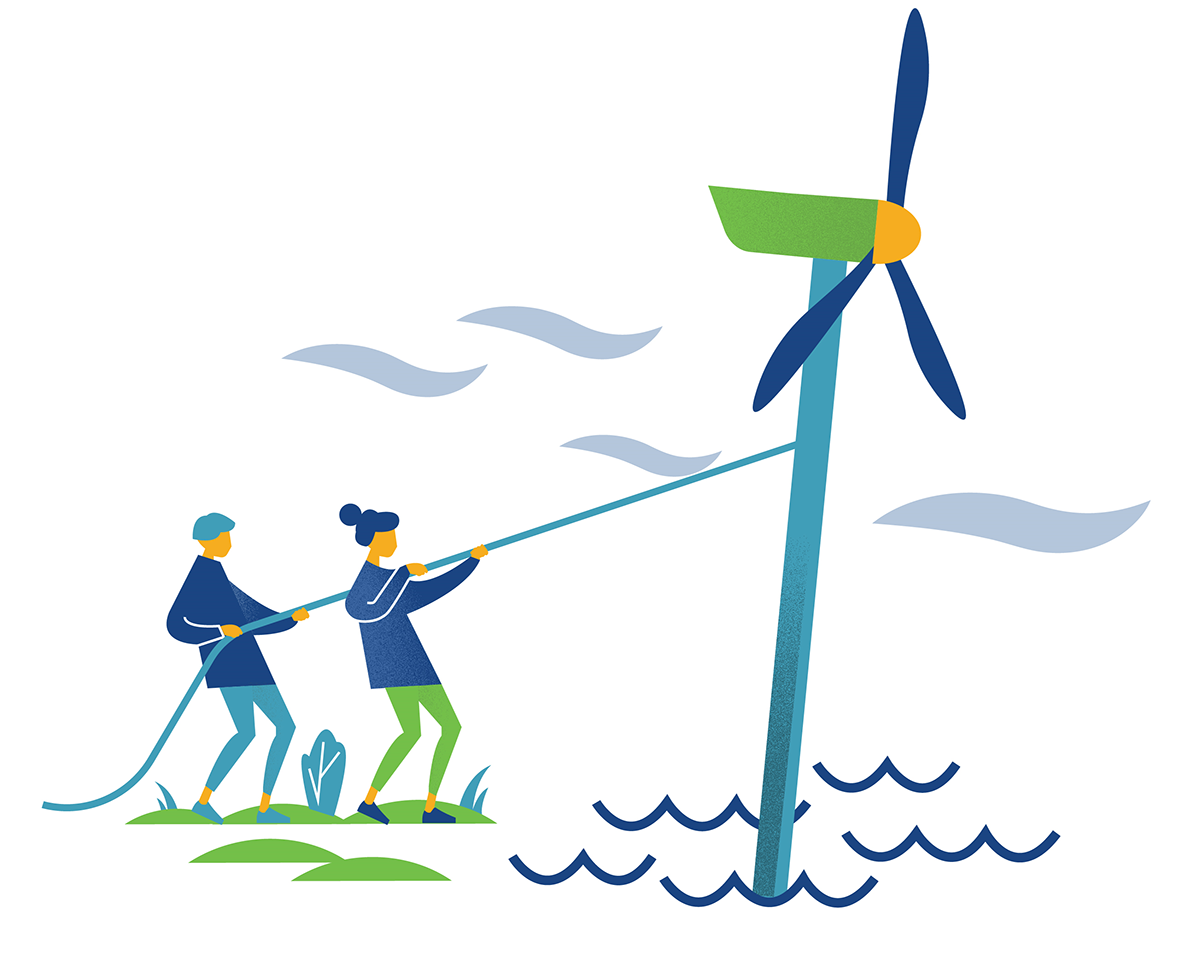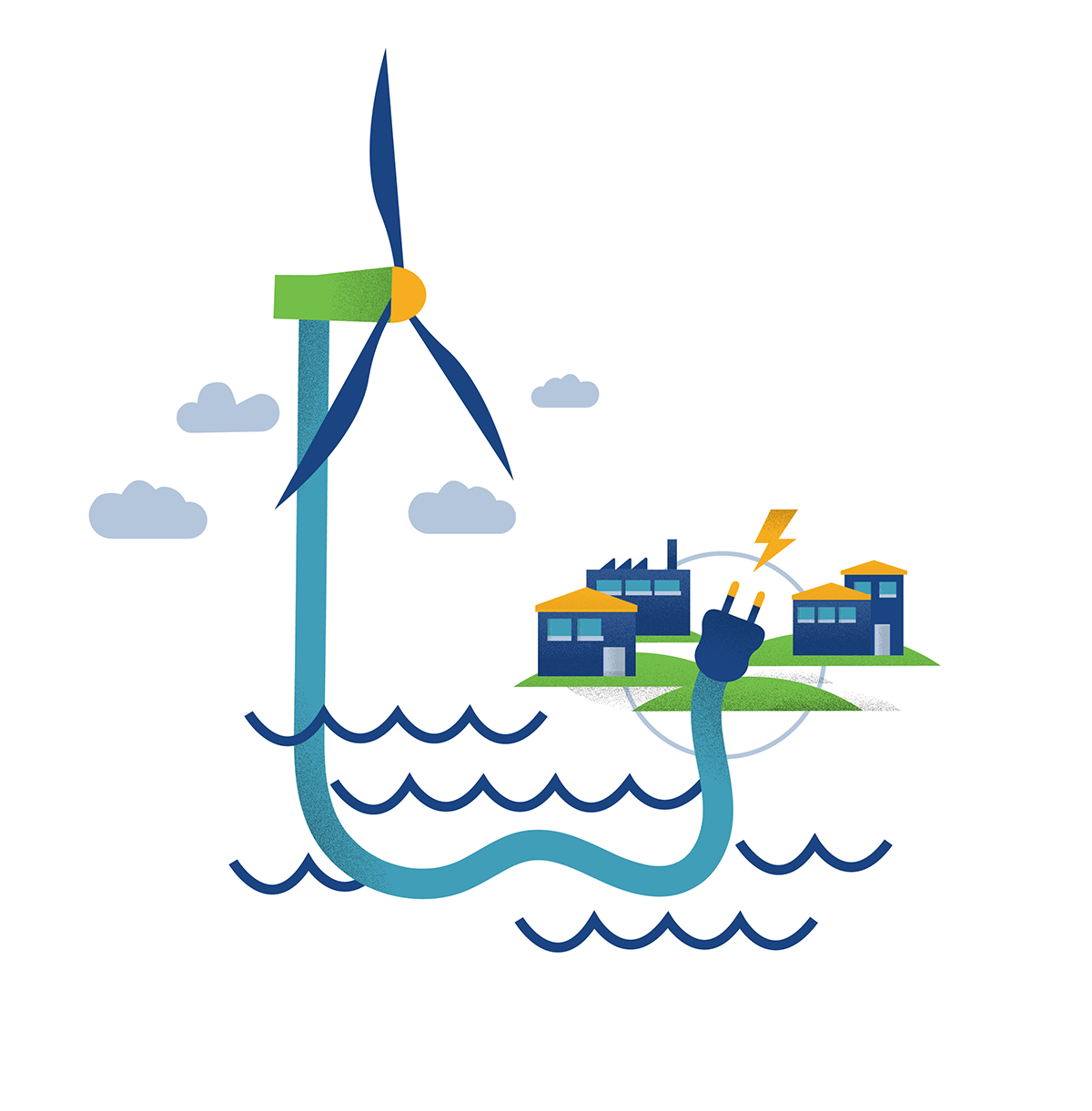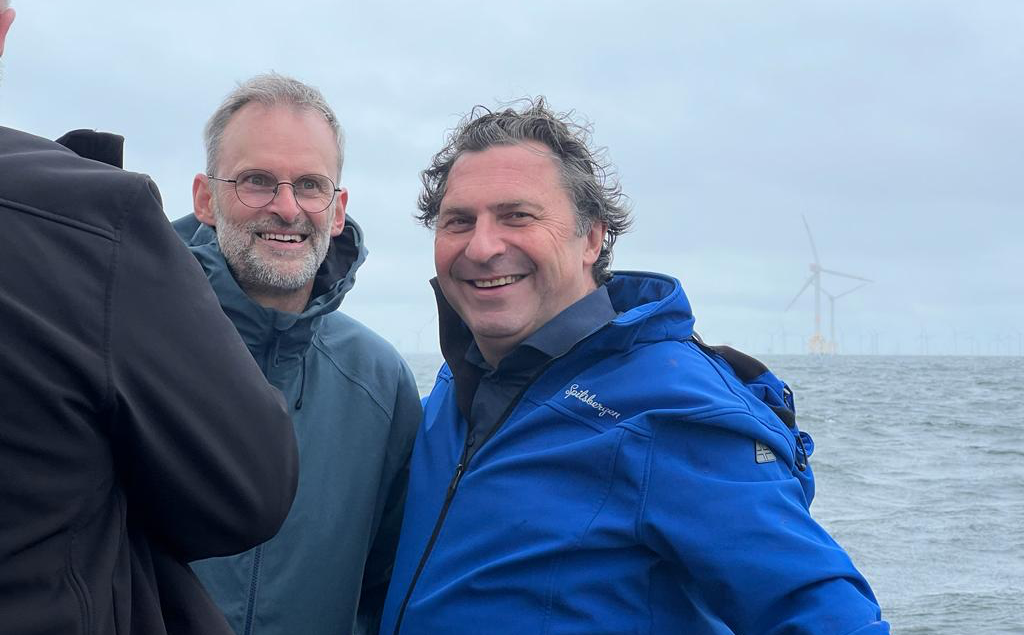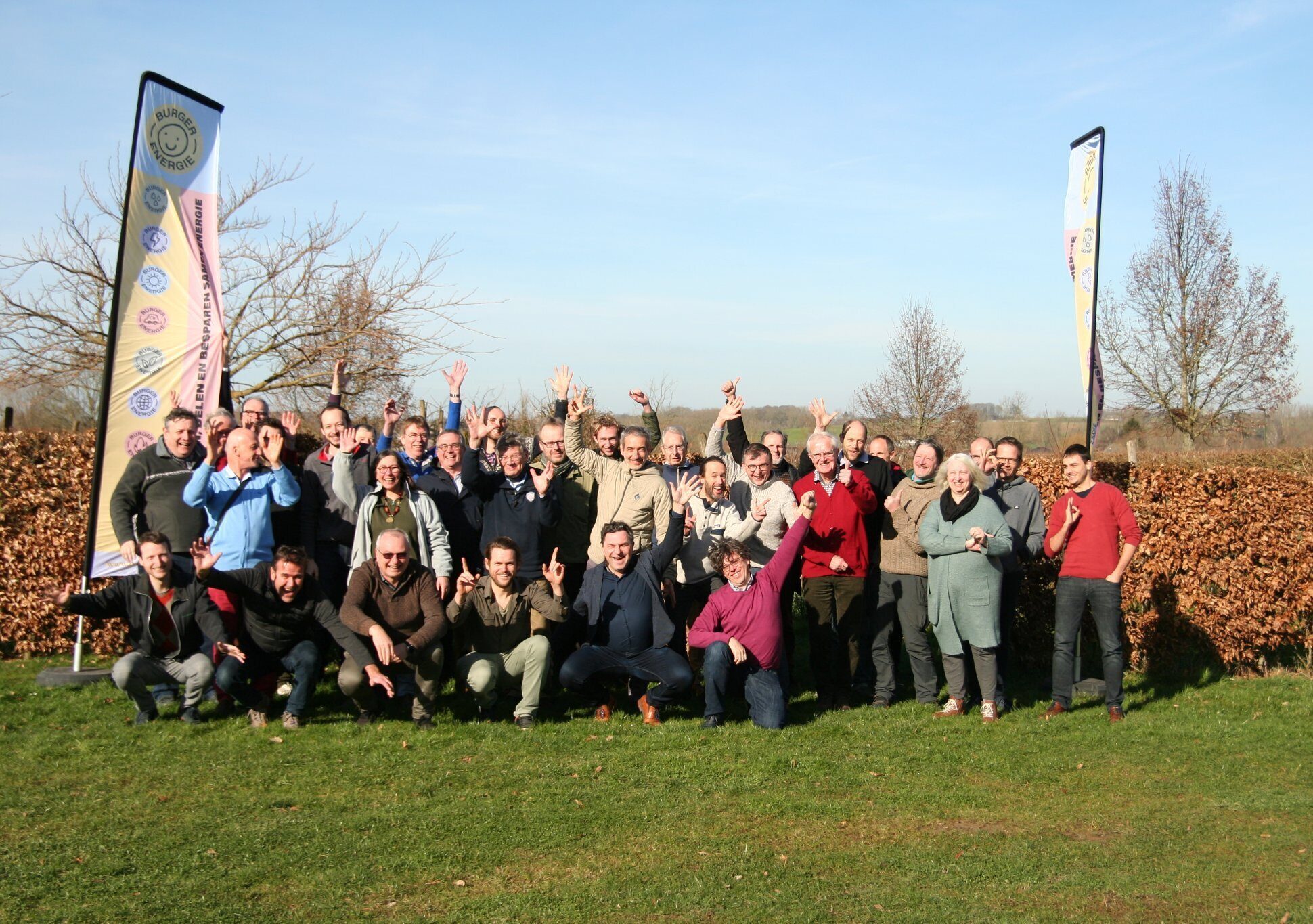Stories
December success story: (Offshore wind) Power to the people
Community energy is key to action on the climate crisis. It can empower people, boost local economies, and reinvigorate communities. Community-led initiatives play an important role in the transition towards a 100% renewable and just energy future. Success stories of community energy projects can be found all over Europe. At REScoop.eu we want to highlight these stories to further accelerate the movement towards a cleaner and democratic system.
This month, we are staying in Belgium to learn more about SeaCoop, an umbrella cooperative that brings together Belgian cooperatives to jointly participate in large offshore wind projects.
The winds of community energy
Critics of community energy claim that community energy is too slow, too democratic, too unrealistic. However, the last couple of years energy communities are already pushing through a revolution in the energy sector that is breaking into the mainstream. Long dismissed as ‘niche’ initiatives for green hobbyists, energy communities are breaking ground in all segments of the energy market, growing large enough to compete with industrial private actors. SeaCoop CVSO - established in April 2022, stands as a beacon of this transformation.
Formed by 34 renewable energy citizen cooperatives - all members of the federations REScoop Flanders or REScoop Wallonia, SeaCoop adopts a visionary "20-20 approach." Philippe Awouters, project manager and board member of SeaCoop, explains this approach: “It entails acquiring a 20% stake in new offshore wind farms in Belgium and supplying 20% of the generated electricity to Belgian households and small and medium-sized enterprises (SMEs) through cooperative suppliers Ecopower and COCITER.”

Legal empowerment: from vision to reality
In 2019, the Royal Decree on new offshore zones included citizen participation as one of the tender criteria. The Decree was the base on which the Belgian cooperatives could start organising themselves to collectively bid on new offshore wind projects. The memorandum “The wind at sea is for everyone” – presented in 2020 to the Belgian government by REScoop Flanders and REScoop Wallonia, paved the way to include substantial specific points on citizen participation in the selection criteria. Fast forward to October 26, 2022, the government published a law that transposed provisions for renewable energy communities (RECs) at the federal level, solidifying citizen involvement as a key selection criterion for offshore wind projects.
A minimum of 1% of the capital raised for the entire project should be opened to citizens. The tender criteria will allocate 10% of the points to citizen participation and the RECs are entitled to contract 25% of the energy through a citizen purchase power agreement (PPA). Last week, the Belgian government agreed on the details of the tender criteria. “Belgium will triple its North Sea wind power generation capacity within the next decade, equivalent to the total annual consumption of all Belgian households. The government has established specific criteria for the construction of these wind turbines. I have always placed great importance on citizen participation being a mandatory criterion. I am therefore pleased to announce that citizens will have direct access to offshore wind energy”, said Tinne Van der Straeten, Belgian minister for Energy. Adding: “Belgium is at the forefront of European innovation by incorporating citizen participation as a compulsory element. This groundbreaking approach ensures that wind energy profits can directly benefit citizens, communities and small businesses. By laying down these criteria now, we are keeping momentum in the realization of the new offshore wind zone. With affordable North Sea electricity from our own country, we ensure structurally lower prices and reduce CO2 emissions.”

Awouters emphasises the importance of this legal framework: “The tender criteria not only form a base to allow citizens to take ownership of renewable energy generation, they will also lead to a more stable price for end-users through the citizen PPA”. The timeline for these endeavours involve the tender being published by the end of 2024, submissions due by September 2025, and awards expected by the end of 2025.
Thinking ahead - creating a robust business case
Beyond legal strides, SeaCoop recognises the necessity of a well defined business model and payback scheme in a competitive sector like offshore wind. Awouters acknowledges that it is important to hedge against risks, and to create clearer expectations between partners.
“Energy communities face fierce competition against multinational consortia, and investment needs soaring between 75 to 200 million euro. Therefore, SeaCoop had to take strategic steps, including creating a template Memorandum of Understanding, collaborating with various consortia, and exploring specific Cooperative Power Purchase Agreements (CooPPAs) to ensure the banks that the CooPPA revenue source is stable for the consortium.”

If not all of us can access clean energy, it’s not my revolution
As the EU Green Deal gains momentum and climate- and energy policies enter the critical implementation phase, SeaCoop stands as a testament to the essential connection between clean energy and social equity. On the one hand the EU’s progress to date remains “highly insufficient” as per the Climate Action Tracker. On the other hand, climate policies are increasingly entangled in culture wars claiming that such policies place disproportionate burden on the poorest segments of society. It is a false dilemma: addressing social inequalities concurrently with the climate crisis is a widely popular proposal, with a staggering 68 percent of Europeans being in favour of such a dual approach. As the world rallies around the ambitious goal of trebling renewable energy by 2030, social conflicts around ownership, permitting, and land use are set to intensify. Awouters sees an important role for energy communities in addressing this approach: “direct citizen ownership of renewable energy projects is an essential safeguard to garner social acceptance and accelerate the transition.”

SeaCoop’s ambition is clear: mobilising tens of millions of euros of citizen capital towards the energy transition increases social acceptance, and actively works against energy price speculation. SeaCoop's cooperative nature prioritises social and environmental goals over profit, contributing to price stabilisation and economic resilience.
With the December 2024 EU elections on the horizon, SeaCoop's unwavering commitment reflects the urgency of empowering citizens to actively participate in the clean energy transition. Remember the 2016 TU Delft study indicating that 1 in 2 EU citizens could be producing their own electricity by 2050? Perhaps SeaCoop’s unstoppable march calls for an -upwards- revision of the numbers?
SeaCoop's story has also been selected as one of the 11 case studies showcased by the European Commission's Energy Communities Repository. Read it here!